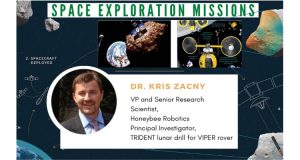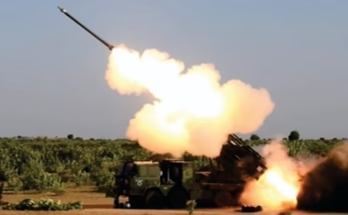 Ashis Sinha I Dhanbad: The Mining Engineering Department at IIT (ISM) Dhanbad is at work to improve its awareness and knowledge of planetary resources aiming to prepare for future research in the subject.
Ashis Sinha I Dhanbad: The Mining Engineering Department at IIT (ISM) Dhanbad is at work to improve its awareness and knowledge of planetary resources aiming to prepare for future research in the subject.
A series of lectures is being organised by experts from numerous prominent organisations working in space technologies around the world, informed Rajni Singh, Associate Dean, Media & Branding of ISM.
“These lectures would address a wide range of concepts and methods related to asteroid mining, including but not limited to— Potential space resources of future; Technologies for in-situ exploration of Planetary Resources; Technologies for space mining and in-situ production of space resources; Infrastructure requirements for space mining and others,” she added.
The first in this lecture series Dr. Kris Zacny, the Vice President and Senior Research Scientist at Honeybee Robotics will share their experiences and briefed on the subject. His interests include space mining, sample handling, soil and rock mechanics, extra-terrestrial drilling, and In Situ Resource Utilization (ISRU), she said.
Dr. Zacny is a Principal Investigator of the TRIDENT lunar drill for the VIPER rover. He received his Ph.D. (UC Berkeley, 2005) in Geotechnical Engineering with an emphasis on Extra-terrestrial Drilling and Mining, ME (UC Berkeley, 2001) in Petroleum Engineering with emphasis on Drilling and Materials Science, and B Sc cum laude (U. Cape Town, 1997) in Mechanical Engineering. He has participated in several Antarctic, Arctic, Atacama, and Greenland expeditions and has approx. 200 publications.
In his lecture, Dr. Zacny will discuss space exploration missions and in particular focus on the VIPER rover to the Moon, Europa deep drill, and Mars water extraction system.
Explaining the need for future research and a broad investigation Professor Siddhant Sharma said, in a world of ever-increasing demand from commerce and technology, the Earth’s mineral resources are limited. Some of the Earth’s most vital mineral resources, which are necessary to manufacture present technologies and industries, are expected to be depleted in the next 40-50 years.
As a result, for the future of economic and technological advancement, new frontiers in mining metals and energy resources are necessary, he said.
Sharma further added, “Space colonisation and industrialization appear to be high on humanity’s development agenda. The scenario now represents huge incentives to explore beyond our planet’s boundaries for valuable future economic resources; thanks to the growing commercial activities in space, which are worth several billion dollars per year and include telecommunications, direct broadcast television, navigation, remote sensing, and meteorological services, among others.”
Asteroid mining has the potential to account for a considerable fraction of future human space operations, making it one of space’s most powerful industries. With the advancement of space and automation technologies, the necessary understanding of space is increasing, and ideas for commercialising space are being thoroughly evaluated, said Sharma.



